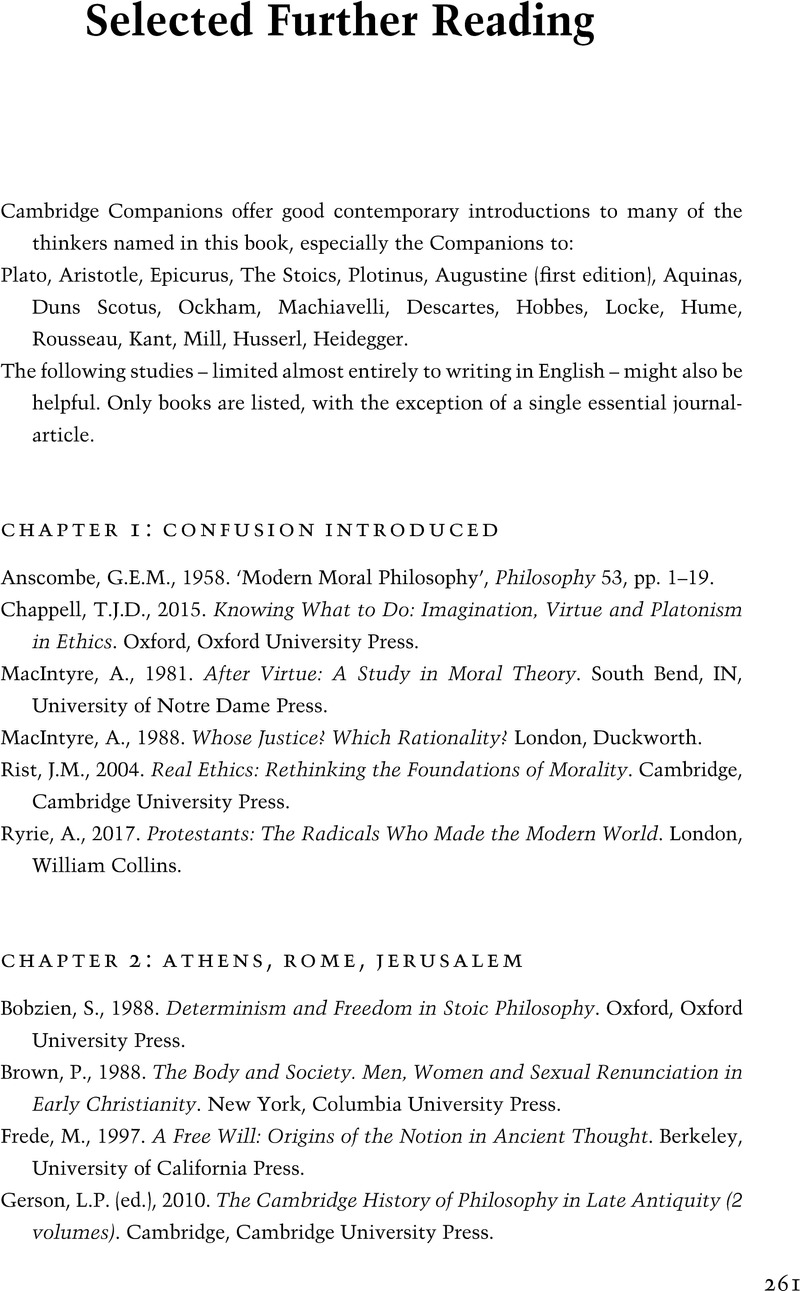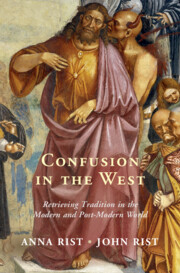Book contents
- Confusion in the West
- Confusion in the West
- Copyright page
- Dedication
- Contents
- Preamble
- 1 Confusion Introduced
- 2 Athens, Rome, Jerusalem
- 3 From Constantine to Henry VIII
- 4 Man Enlightened
- 5 Totalitarian Man
- 6 Scientistic Humanism
- 7 World War, Bureaucracy, Consumerism
- 8 Sexual Liberation and the Subversion of the Person
- 9 Personalism, Virtue Ethics and the Original Tradition
- 10 Culture, What Culture? 2021
- Selected Further Reading
- Index
- References
Selected Further Reading
Published online by Cambridge University Press: 24 November 2022
- Confusion in the West
- Confusion in the West
- Copyright page
- Dedication
- Contents
- Preamble
- 1 Confusion Introduced
- 2 Athens, Rome, Jerusalem
- 3 From Constantine to Henry VIII
- 4 Man Enlightened
- 5 Totalitarian Man
- 6 Scientistic Humanism
- 7 World War, Bureaucracy, Consumerism
- 8 Sexual Liberation and the Subversion of the Person
- 9 Personalism, Virtue Ethics and the Original Tradition
- 10 Culture, What Culture? 2021
- Selected Further Reading
- Index
- References
Summary

- Type
- Chapter
- Information
- Confusion in the WestRetrieving Tradition in the Modern and Post-Modern World, pp. 261 - 265Publisher: Cambridge University PressPrint publication year: 2022



